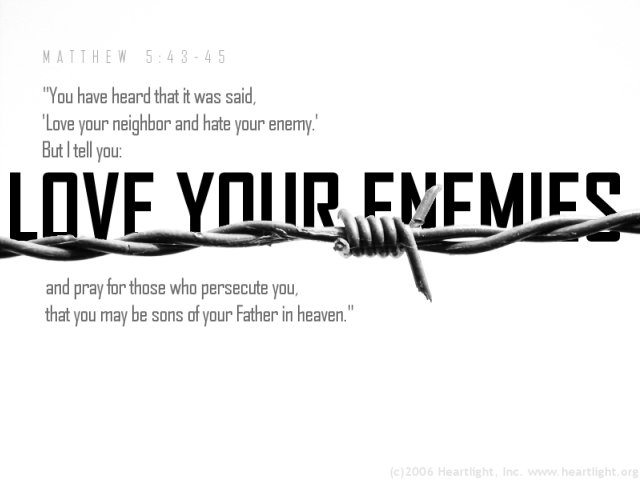My entire faith tradition is wrapped around forgiveness and the desire for a relationship. God could’ve stayed in heaven, whatever that is. Instead, he chose to come be with us–not in a modern air-conditioned palace with servants and rich food. He came at a time when life was difficult and uncomfortable, to a place that’s not forgiving.
And he forgave us for what we did to him and what we do to each other.
Godly kindness is countercultural in this world. While the Bible may say the meek inherit the earth, our view is more like the villain from The Magnificent Seven, who said, “If God didn’t want them sheared, He wouldn’t have made them sheep.”
Though we all pine for forgiveness, for we’ve all screwed up, its a concept that’s hard to believe in. I struggle to believe in forgiveness for myself. I know what I’ve done through life. I know what I deserve. And I struggle to believe that anyone would want to untie me from that judgement.
Yet, as a Christian, that’s what I’m supposed to believe. If I don’t believe in forgiveness, it’s hard to truly forgive others for the their wrongs, both real and imagined. For me, it’s not an angry force field that repels any trespasser. To borrow a phrase from Simon and Garfunkel, I build walls, a fortress deep and mighty, that none may penetrate.
It’s a bleak, lonely way to live.
It would be better if only I believed in forgiveness. You can’t really extend what you can’t bring yourself to believe in.
I want to forgive. I want to tear down the walls of separation. I want to believe in that miracle. Because if I believe in it, I can extend it to others–and maybe help them have the courage to chip away at their walls.









